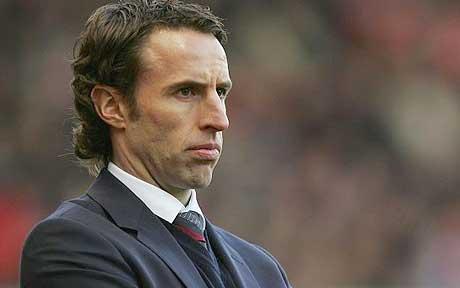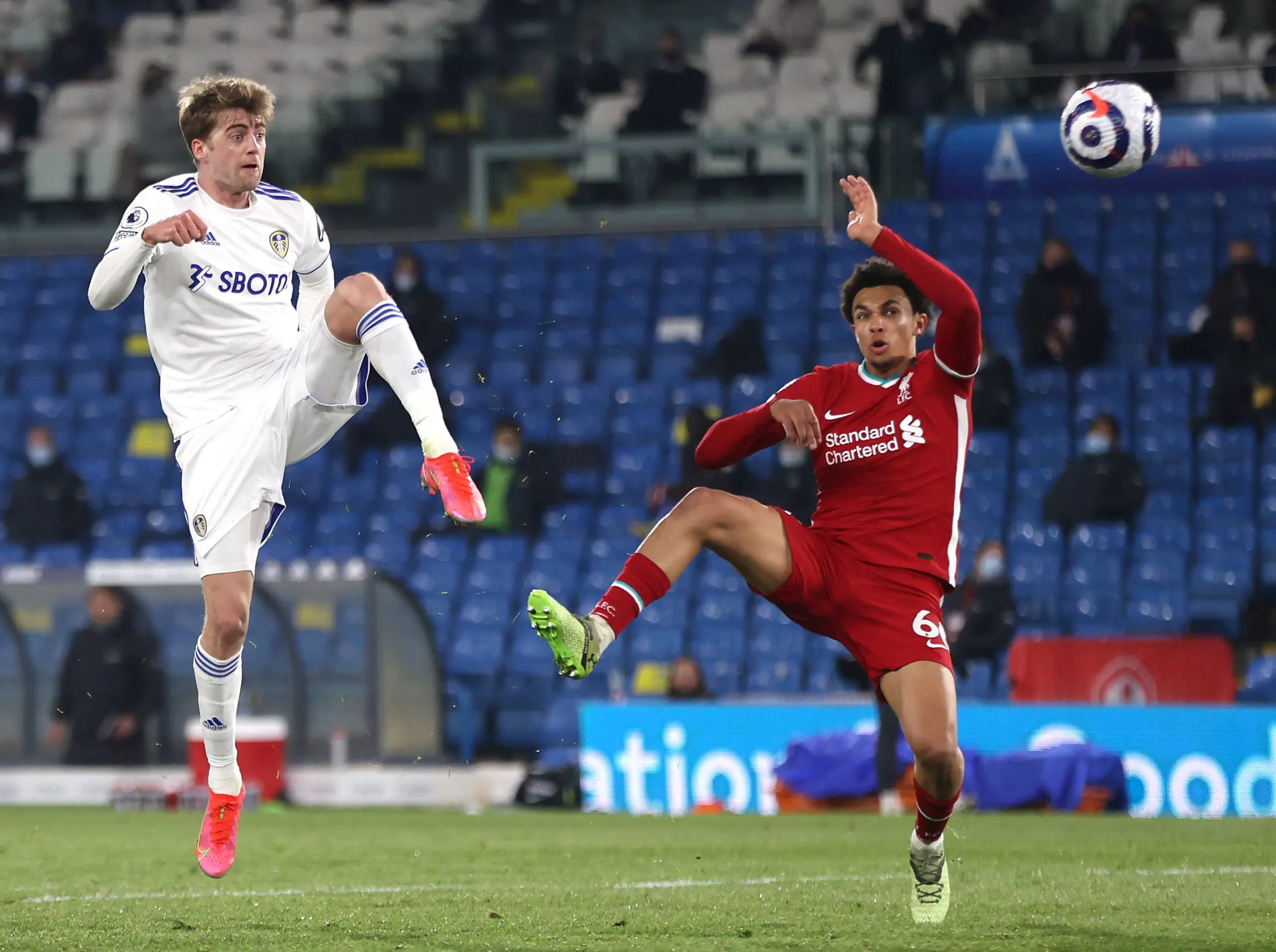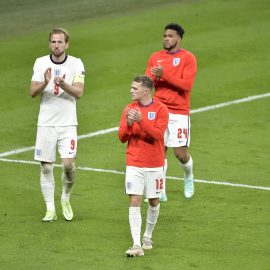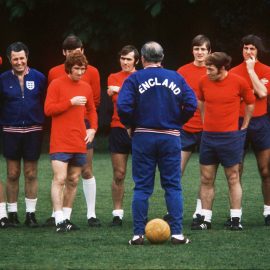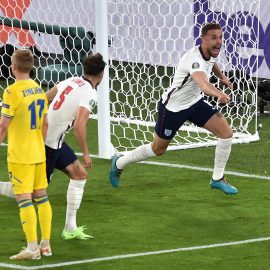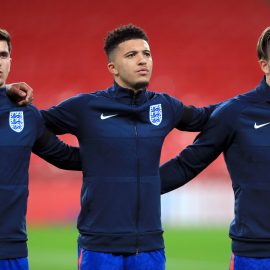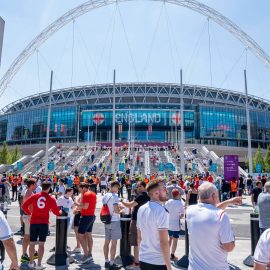The appointment of Gareth Southgate as England U21 manager is interesting from a number of perspectives; not least in that it raises the questions that it raises. Although some would argue it to be the ‘safe’ appointment, in that he already has the FA tie and blazer – with all of the inculcated ethos usually ‘stitched up’ into those garments – it is fair to say that just over a year ago he resigned from his job as Head of Elite Development there, on the same day as the organization confirmed that he would not be considered for the role of Technical Director. Like most people, I have no information to say the two issues were linked, so we’ll each have to draw our own conclusions on that one. It could certainly therefore be argued that after leaving the FA under such circumstances, any ‘old boy network’ advantage may have been somewhat diminished, so perhaps he was an outsider in the sense that he had no ‘inside track.’ I guess it’s a bit of a smoke and mirrors one to pick apart.
The other point for debate of course is what, during his eighteen months or so in post at the FA, did he achieve as Head of Elite Development? As a pretty ordinary football fan, I didn’t notice any particular upturn in the performance of the ‘elite’ players under the auspices of the FA. Did you? I’m also left to wonder how such a post would mesh with the England manager’s position. Of course, it may be that an inability to effect change in what is often considered to be a stultifying conservative organization may be the reason for his resignation. Now where did I put that smoke machine and those mirrors?
Regardless of the above, Southgate is without doubt fairly untypical of an ex-footballer in many people’s eyes. This is not to say that he doesn’t do the media rounds so beloved of retired players, but there’s a certain way in which he performs such chores. Never the ‘show pony’ pundit of the ilk of Jamie Redknapp for example, or the grizzled ex-pro winner who everybody grudgingly now respects, and even – whisper it so softly – actually likes, such as Gary Neville. Southgate is the urbane face of the ex-player, knowledgeable of the game, but not controversial. The safe pundit who will say the necessary things with a measure of authority, but never dip into the gutter for a handful of dirt to throw at anybody.
It could be argued that this is an extension of his previous careers in the game. He was the type of player that a chunk of people would have predicted as a future manager, bright and intelligent, the captain of the team and the manager’s voice on the pitch. He played at a high level , and accumulated over a half century of international caps, but would probably never be regarded as a truly ‘great player.’ As a manager he took unfashionable Middlesbrough to as high as sixth in the Premier League, before falling away to relegation and eventual dismissal. Compared to other more stellar careers, it’s a so far, but only so near, sort of CV.
Although perhaps very dissimilar in some ways, there’s a striking resemblance to the record of his predecessor in the role, Stuart Pearce. Again, a stalwart player at both club and international level, where he had 50% more caps, he was largely a contemporary of Southgate. Also very much like Southgate, Pearce had a fairly unspectacular club managerial history behind him. Another question therefore is whether the FA have just replaced Pearce with a slightly different version of the same type of manager. To use the hackneyed old phrase is it just a case of rearranging the deckchairs on the Titanic? In fairness to the FA, the next question, of course, is who else was there to choose from?
Sad to say, fans never get to see the official shortlist for these posts, or even the list of applicants for that matter. All we can rely on is the potentially dubious drip feed from the media. From this, we were informed that Steve McLaren had been interviewed, but surely that was a non-starter. There was also talk of Paul Ince being considered, but there again, can you see the similarity of CV? To my mind, this is the crux of the whole problem. No successful coach appears to be particularly interested in the role of managing England’s U21 team. So why is that? Surely, one possible reason is that it’s the job with no job description. Anybody looking to take up a new position in any organization will want to know what they are expected to achieve. What are the KPIs for the job? How is their success or failure going to be measured?
Here’s a picture. At the time, of Stuart Pearce taking up the post, with Fabio Capello in charge of the full team and a with ‘full on’ clamour in the press for an English coach, the appointment was deemed as almost an ‘England manager in waiting’ sort of position. Pearce sat on the bench alongside the Italian during internationals, and was the embodiment of the guy learning at the feet of the man he was destined to replace. Unfortunately, the plan didn’t quite work out though. Capello was gone, and Pearce was deemed as not being successful enough at his current job.
But what would be deemed as success? If the U21 went three or four years without winning a tournament, but produced five players for the full team is that better or worse than winning the European U21 tournament, and no players progressing? In short, what are the U21s for? Some bright spark will say that Spain can do both, and that’s true, but that took a root and branch overhaul of their system some years ago, that is now bearing abundant fruit. Deciding on what under-age teams are for is one of the first steps in such a plan.
I have no idea of what an interview at the FA comprises, but I’ve been in and conducted a few in my time, and normally at the end, the interviewer asks something along the lines of “Do you have any questions for us?” It may not happen at FA versions, but if it did, I really hope that two things happened. Firstly that Southgate replied with something along the lines of “So, precisely what is it that you want me to achieve?” Secondly, and this is the more important point, I hope the question didn’t produce a lot of blank and confused expressions from the interviewers.
For more from All Blue Daze:
Facebook: Search ‘All Blue Daze’ and click ‘Like’
Twitter: @All_Blue_Daze
Blog: www.allbluedaze.tumblr.com
Add Sportslens to your Google News Feed!
